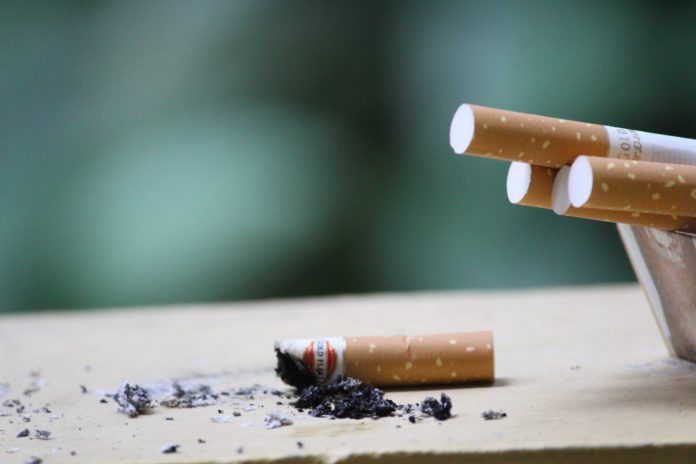South Africa has reached a tipping point in the growth of the illicit trade and the threat this poses to the country, panelists on a Consumer Goods Council of South Africa webinar on the topic said.
Judge Dennis Davis said apart from the well-known examples of illicit trade in cigarettes and alcohol, he received calls on a daily basis from business people complaining that their businesses were being “vitally affected by illegal trade coming into the country, illegal goods being deposited in the country, and ultimately the illegal component takes over from the legal component.
He estimated that the tax gap associated with the illicit trade amounted to more than R100 billion a year.
“We’re in serious trouble… Unless there’s the political will to curb rent seeking and attack head on a project which has been going on for years, before state capture and certainly through state capture, I worry that the illicit economy will just continue to overwhelm society,” Judge Davis said.
Director of the Global Initiative Against Transnational Organised Crime Dr Mark Shaw said while there was currently no data available which would make it possible to link individual murders to the illicit economy, “but when you look at the data more generally and break it down you will recognise that the upswing in violence relates to our inability to police the broader illicit economy”.
He was referring to the 38% increase in the murder rate in the country recorded between 2012 and 2022. He said the illicit economy brought violence with it and communities bore the brunt of this. He suggested it was time for business to think beyond the impact of illicit trade on the bottom line and consider that addressing the illicit economy was critical to improving the lot of ordinary South Africans.
“This cannot be solved by law enforcement alone, you really need a whole of society approach, building links between key players across the society to lever comparative advantages and be able to make a difference.”
Dr Carina Bruwer, Senior Researcher at the Institute for Security Studies, said: “Whether it is a transnational organised criminal network, or a state institution or individual or perhaps a multinational company, if they are not being held accountable by the courts, it is time for civil society to come forward and say, we’re fed up.
“Resources for enforcement are crucial, therefore maybe it’s time to turn to private actors and civilians to come to the table instead of always turning to increased law enforcement.”
Chairman of the Gauteng Community Policing Forum TJ Masilela said South Africa had created a culture in which buying illicit goods was normalised.
Giving the example of a truck that had recently been stopped carrying counterfeit alcohol containing potentially harmful ingredients including glycerine, Masilela said: “We have come to a point where we need to decide. For the sake of our kids, we need to make sure the government of the day makes sure these things don’t happen.”
Addressing the question of illicit alcohol, Convenor of the National Liquor Traders Lucky Ntimane said there were about 39 000 taverns in the country, versus about 120 000 unlicensed shebeens.
“These are people selling alcohol in competition with the legal taverns, the same products, albeit they are wanting to push higher profit margins and illicit and counterfeit alcohol provide a great opportunity for them to make that money because they are not bound by any laws or regulations, they are not even scared of police. In fact, in many instances these guys have police in their pockets.
“We have called on government to formalise this unlicensed market. Those shebeens that have the right infrastructure to be lincensed should be prioritised and we help to bring them into the formal market so that we are able to have interventions that are running in the township space to get everyone to come on board and sell alcohol in a responsible manner.”
Abraham Nelson from the CGCSA’s Consumer Goods Risk Initiative said: “If we do not do this together, all citizens, then it’s going to be difficult to mitigate this threat.”
He called on members of the public to report illicit trade on the CGCSA’s illicit crime hotline on 0800 014 856, saying intelligence provided by communities helped the authorities to interdict illicit goods. “I’m saying it’s not the just the responsibility of SAPS or SARS to fight crime, we have the responsibility as citizens to help them.”
An Ipsos poll recently found that illicit cigarettes are being sold in up to four out of five stores in hotspot provinces. A pack of 20 can be bought for as little as R7, less than one third of the minimum taxes legally due on them.


